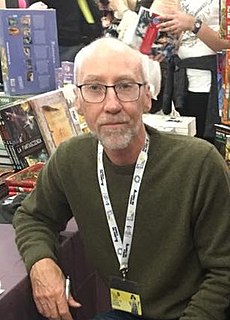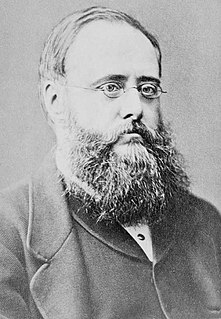A Quote by R.L. LaFevers
I am a handmaiden of Death. I walk in His dark shadow and do His bidding. Serving Him is my only purpose in this life.
Related Quotes
His face set in grim determination, Richard slogged ahead, his fingers reaching up to touch the tooth under his shirt. Loneliness, deeper than he had never known, sagged his shoulders. All his friends were lost to him. He knew now that his life was not his own. It belonged to his duty, to his task. He was the Seeker. Nothing more. Nothing less. Not his own man, but a pawn to be used by others. A tool, same as his sword, to help others, that they might have the life he had only glimpsed for a twinkling. He was no different from the dark things in the boundary. A bringer of death.
If a man withdraws his mind from the love of beauty, and applies it as sincerely to the love of the virtuous; if, in serving his parents, he can exert his utmost strength; if, in serving his prince, he can devote his life; if in his intercourse with his friends, his words are sincere - although men say that he has not learned, I will certainly say that he has.
In a sense, the religious person must have no real views of his own and it is presumptuous of him, in fact, to have any. In regard to sex-love affairs, to marriage and family relations, to business, to politics, and to virtually everything else that is important in his life, he must try to discover what his god and his clergy would like him to do; and he must primarily do their bidding.
And he began to see the truth, that Ged had neither lost nor won but, naming the shadow of his death with his own name, had made himself whole: a man who, knowing his whole true self, cannot be used or possessed by any power other than himself, and whose life therefore is lived for life's sake and never in the service of ruin, or pain, or hatred, or the dark.
There was a man that hated his footprints and his shadow, so one day he thought that if he ran fast enough, his footprints and shadow would not be able to follow him and then he never ever had to look at them again. He ran and he ran as fast as he could, but the shadow and the footprints had no problems keeping up to him. And he ran even faster and all of a sudden he fell dead to the ground. But if he been standing still there hadn't been any footprints and if he had been resting under a tree his shadow had been swallowed of the trees shadow.
I stand, walk over to him, sit down on his bed, put my arms around him, hug him. He hugs me back strong and I can feel the shame coming through his arms. I am a Criminal and he is a Judge and I am white and he is black, but at this moment none of that matters. He is a man who needs a friends and I can be his friend.
To no man does the earth mean so much as to the soldier. When he presses himself down upon her long and powerfully, when he buries his face and his limbs deep in her from the fear of death by shell-fire, then she is his only friend, his brother, his mother; he stifles his terror and his cries in her silence and her security; she shelters him and releases him for ten seconds to live, to run, ten seconds of life; receives him again and again and often forever.
Le Chiffre was serving a wonderful purpose, a really vital purpose, perhaps the best and highest purpose of all. By his evil existence, which foolishly I have helped to destroy, he was creating a norm of badness by which, and by which alone, an opposite norm of goodness could exist. We were privileged, in our short knowledge of him, to see and estimate his wickedness and we emerge from the acquaintanceship better and more virtuous men.
I was living my own future and my brother's lost one as well. I represented him here just as he represented me there, in some unguessable other place. His move from life to death might resemble my stepping into the kitchen - into its soft nowhere quality and foggy hum. I breathed the dark air. If I had at that moment a sense of calm kindly death while my heart beat and my lungs expanded, he might know a similar sense of life in the middle of his ongoing death.
As far as we can reach, He Who Is, and God, are the special names of His Essence; and of these especially He Who Is, not only because when He spoke to Moses in the mount, and Moses asked what His Name was, this was what He called Himself, bidding him say to the people 'I Am has sent me' (Ex. 3:14), but also because we find that this Name is the more strictly appropriate.
Not the shadow of a doubt crossed my mind of the purpose for which the Count had left the theatre. His escape from us, that evening, was beyond all question the preliminary only to his escape from London. The mark of the Brotherhood was on his arm-I felt as certain of it as if he had shown me the brand; and the betrayal of the Brotherhood was on his conscience-I had seen it in his recognition of Pesca.
It was pitch dark. I could hear only the violin, and it was as though Juliek's soul were the bow. He was playing his life. The whole of his life was gliding on the strings--his last hopes, his charred past, his extinguished future. He played as he would never play again...When I awoke, in the daylight, I could see Juliek, opposite me, slumped over, dead. Near him lay his violin, smashed, trampled, a strange overwhelming little corpse.





































